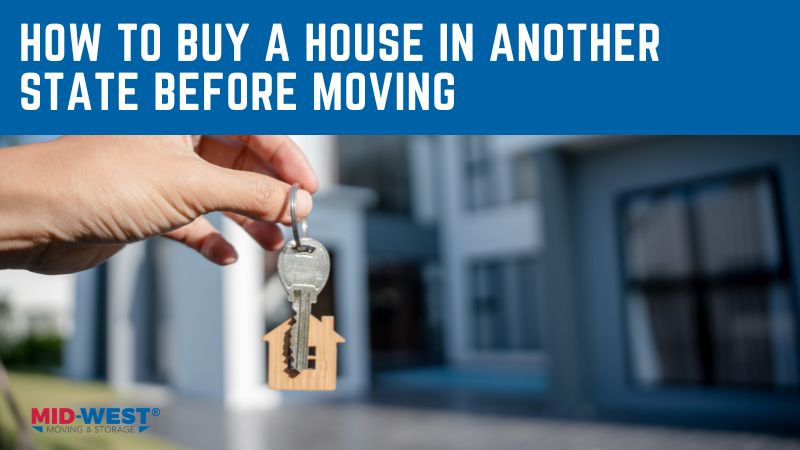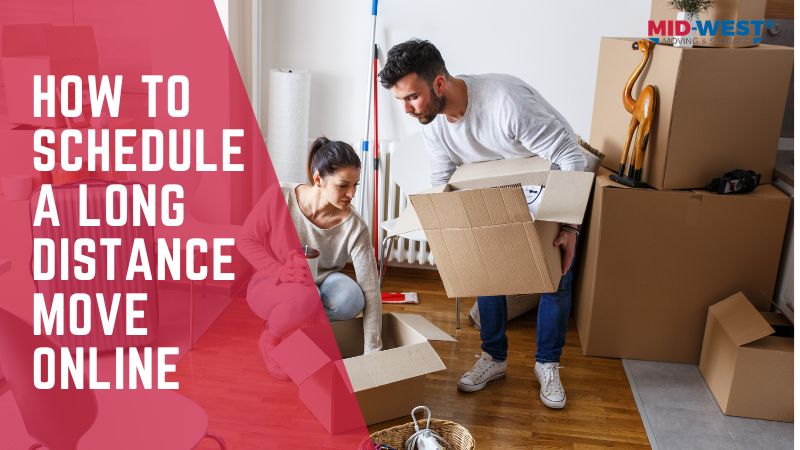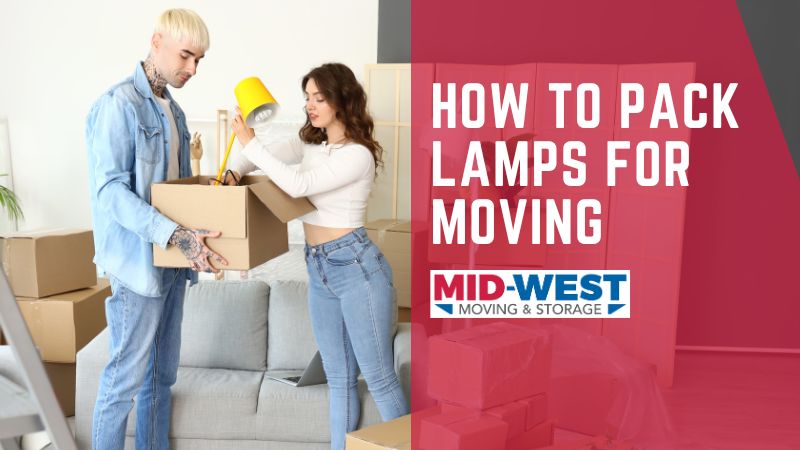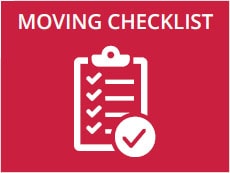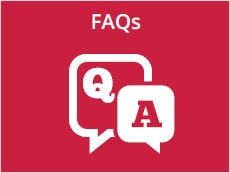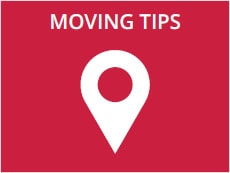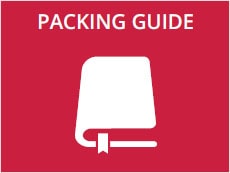Last Updated on November 25, 2025 by Kari-Ann Ryan
Buying a home in a new state can open the door to exciting opportunities, but it also requires thoughtful planning and sustained effort. With a clear strategy, a flexible timeline of several weeks to a few months, and the right guidance, you can confidently turn your out-of-state homebuying goals into reality.
People relocate for many reasons. Career-focused individuals may move to states with stronger job markets, higher salaries, or thriving industries such as technology, energy, or finance. Others cross state lines to be closer to family or deepen personal connections. Some simply crave a fresh start in a new environment, one where they can build new routines, meet new people, and explore unfamiliar surroundings.
Today’s technology makes buying a home in another state more accessible than ever. Virtual tours, online communication tools, and digital connections with local real estate professionals allow buyers to explore properties from afar. Still, it’s important to allow at least three weeks, and often several months, to complete the process smoothly.
Quick Answer: How to Buy a House in Another State Before You Move
To buy a house in another state before moving, you should:
- Clarify why you’re relocating and what kind of lifestyle you want
- Establish a realistic timeline that accounts for travel, loan approval, and closing
- Research affordability, cost of living, and taxes in the new state
- Visit the area (in person or virtually) to understand neighborhoods and amenities
- Choose a local real estate agent who knows your target city or neighborhood
- Get pre-approved for a mortgage to show sellers you’re serious
- Make a competitive offer and be prepared for negotiations
- Schedule a professional home inspection and review the report carefully
- Coordinate with a trusted long-distance moving company so your move and closing line up
The steps below walk through each of these in more detail, with added tips from a long-distance mover’s perspective.
1. Why Are You Moving to Another State?
Finding the right community in a new state starts with understanding your “why.” Are you moving to:
- Enjoy a vibrant cultural scene or nightlife?
- Live in a quieter, family-friendly neighborhood?
- Take advantage of a different climate or outdoor lifestyle?
- Shorten your commute or be closer to work?
- Move nearer to family or a support system?
Being clear about the purpose behind your move helps you make focused decisions and avoid getting distracted by homes that don’t truly fit your long-term goals.
2. How Should You Plan Your Timeline?
Your timeline depends on:
- Local housing market conditions
- How quickly you can travel to the new area (if you choose to visit)
- Your mortgage approval and closing process
- Your current lease end date or home sale date
- When you want or need to start a new job
Some buyers move quickly by choosing a move-in-ready home and attending virtual tours instead of making multiple trips. Others prefer a more relaxed pace, building in time to visit neighborhoods, explore schools, or plan renovations.
As a mover, we often see families underestimate how long everything takes. A realistic window for an out-of-state purchase is often 6–10 weeks from accepted offer to move-in, though it can be shorter or longer depending on your situation and the local market.
3. How Do You Figure Out What You Can Afford in a New State?
Affordability goes beyond the purchase price. In addition to your down payment, budget for:
- Monthly mortgage payments
- Property taxes (which can vary significantly by state and county)
- Homeowner’s insurance
- HOA or condo fees, if applicable
- Utilities and maintenance
- Moving costs and possible storage
The cost of living may be higher or lower in your new state, so use online cost-of-living calculators to compare your current and future expenses. Learn the specific property tax rates and any local assessments. When in doubt, consult a tax professional or the state’s Department of Assessment and Taxation.
Getting pre-approved for a mortgage is an important step. It shows sellers that you’re serious, gives you a clear price range, and helps you move faster when you find the right home.
4. Should You Visit the New City Before Buying?
Whenever possible, visit your new city before buying. An in-person trip can give you invaluable insight into:
- Neighborhood noise levels and traffic patterns
- Commute times at different times of day
- Proximity to grocery stores, parks, schools, medical facilities, and other amenities
- The overall feel and pace of daily life
Plan time to tour homes with your real estate agent and to simply drive or walk around different neighborhoods.
If traveling is difficult, you can still get an excellent feel for your new area by:
- Arranging virtual showings through your realtor
- Using Google Maps and Street View to “drive” through the neighborhood
- Checking walk scores and transit options
- Joining local social media groups or forums to ask residents about safety, schools, and hidden gems
5. How Do You Choose the Right Real Estate Agent?
A strong local agent is especially important when you’re buying from another state. Look for someone who:
- Is comfortable with technology (video calls, virtual tours, e-signatures)
- Specializes in your target city or neighborhood
- Has experience working with out-of-state buyers
- Communicates clearly and responds promptly
Interview multiple agents, ask for referrals, and check online reviews. If your move is work-related, your employer may offer relocation services. Relocation management companies (RMCs) work closely with employers and can connect you with vetted real estate agents, as well as coordinate parts of the relocation process.
6. How Do You Secure a Mortgage from Out of State?
Unless you’re paying cash, you’ll need a mortgage on your new home. Common options include:
- Conventional loans
- Jumbo loans (for higher-priced homes)
- Government-backed loans such as VA or USDA, depending on your eligibility and location
Once you apply, your lender will provide a loan estimate outlining:
- Interest rate
- Monthly payment estimate
- Closing costs and fees
- Other key terms
Review these details carefully. Buying from out of state often means coordinating documents and signatures digitally, so make sure your lender supports secure online portals and is familiar with working remotely.
7. How Do You Make a Strong Offer in a Competitive Market?
In desirable neighborhoods, homes can sell quickly and attract multiple offers. To strengthen your position:
- Make your offer soon after identifying the right home
- Include your pre-approval letter from your lender
- Discuss realistic expectations with your realtor in advance
- Be prepared to adjust your offer or terms if there are competing bids
It’s not unusual for an initial offer to be declined or for buyers to pay above the list price in highly competitive markets. Your agent can help you structure your offer based on local norms, recent comparable sales, and your comfort level.
8. Why You Should Never Skip the Home Inspection
Skipping a home inspection might make your offer more appealing in a hot market, but it can expose you to costly surprises—especially when you’re buying a home sight unseen or from another state.
A professional home inspection can reveal:
- Structural issues
- Roof or foundation problems
- Plumbing or electrical concerns
- Signs of water damage, mold, or pest activity
If you can’t attend the inspection in person, ask your realtor to be there. Request a detailed written report and photos, and schedule a follow-up call to review any major issues. Depending on the findings, you may be able to renegotiate, request repairs, or walk away if the problems are too severe.
9. How to Hire the Right Long-Distance Moving Company
Once you’ve remotely closed on your new home, it’s time to plan the physical move. Hiring the right long-distance mover is essential when you’re crossing state lines.
When evaluating moving companies, consider:
- Years of experience with interstate moves
- Licensing and insurance (check with the Department of Transportation for USDOT registration)
- Transparent pricing and written estimates
- Protection options for your belongings (valuation coverage)
- Whether packing and unpacking services are available
Compare quotes from at least two or three moving companies. Costs are typically based on:
- The distance your belongings will travel
- The total weight or volume of your shipment
- Additional services, such as packing, unpacking, and furniture assembly
- Storage needs if your dates don’t line up perfectly
Ask whether your move will be direct or if the truck will make stops along the way, which can affect timing.
If you are ready to book your movers, you can follow our guide on how to schedule a long distance move online for step by step instructions.
10. Common Mistakes We See With Out-of-State Homebuyers
From our experience helping individuals and families move long-distance, we often see a few recurring missteps:
- Cutting the timeline too close: Buyers sometimes schedule their move just a day or two after closing. If closing is delayed, it creates stress, temporary housing needs, and storage challenges.
- Underestimating how much they own: People are often surprised by how much furniture, decor, and stored items they’ve accumulated. This can affect the accuracy of moving quotes and the truck size needed. A quick walk through with our checklist in how to prepare furniture for a long distance move can give you a more accurate idea of what is going on the truck.
- Not planning for temporary storage: If you need to leave your current home before your new home is ready, short- or long-term storage can be a lifesaver but it’s best to plan this upfront.
- Forgetting about access and building rules: In some communities or condo buildings, move-in times, parking, and elevator access are restricted. Coordinating these details in advance helps the move go smoothly.
Planning ahead for these possibilities can make your out-of-state move much calmer and more predictable.
Long-Distance Moving With Mid-West Moving & Storage
When buying a home in a new state is on the horizon, choosing a reputable residential moving service can make all the difference. Mid-West Moving & Storage moves individuals and families long-distance affordably and efficiently. Our lengthy industry experience allows us to resolve issues along the way and keep your move on track.
Homebuyers can take advantage of our full range of services, including:
- Short- and long-term storage in secure, climate-controlled facilities
- Professional furniture assembly and disassembly
- Specialized handling of large or delicate items, such as pianos, appliances, and bulky or fragile belongings
- Packing and unpacking support to help you settle in faster
Our long-distance moving crews are trained to safely handle your household goods and are available to help you unpack at your destination so you can start relaxing in your new home sooner. We also follow up after the move to assist with any additional needs, such as storage or extra deliveries.
The relocation process starts with a free estimate and a customized moving plan based on your timeline, home size, and destination.
Mid-West Moving & Storage is ready to transport you and your family to your next location, whether it’s in a new state or another country. Contact us at our Elk Grove Village or Chicago, Illinois, office to discuss your upcoming move and receive a free estimate.
FAQs About Buying a House in Another State Before Moving
Q. Can I buy a house in another state without seeing it in person?
Yes, many buyers purchase homes from out of state using virtual tours, video calls, and detailed photos. However, you should still schedule a professional inspection and have your agent walk the home for you, sharing any concerns about condition, neighborhood, or layout. If possible, plan at least one visit before or shortly after closing.
Q. How long does it usually take to buy a home in another state?
Timelines vary, but many out-of-state buyers spend several weeks researching areas and a few weeks viewing homes (virtually or in person) before making an offer. From accepted offer to closing, 30–60 days is common, depending on the lender, appraisal, inspection, and local market conditions.
Q. Should I rent first or buy when moving to a new state?
Renting first can be a good option if you’re unsure which neighborhood fits you best or if your job situation is still evolving. Buying right away can make sense when you’re confident about the area, want to build equity, or have a firm long-term plan. Your comfort with risk, budget, and timing all play a role in this decision.
Q. How far in advance should I book a long-distance moving company?
For most long-distance moves, booking 4–8 weeks in advance is a good rule of thumb. During busy seasons (summer and end of month), you may want to schedule even earlier to secure your preferred dates. Once your closing date is reasonably firm, it’s a good time to finalize your moving date.
Q. What extra costs should I expect when moving to another state?
In addition to your home purchase and moving services, budget for travel costs, temporary lodging if dates don’t line up, possible storage, utility deposits, and any new furniture or appliances needed for the home. Planning for these upfront avoids surprises and keeps your move on budget.

Founder | CEO
Luis Toledo is a distinguished leader in the residential, commercial and industrial relocation industry, bringing over 45 years of expertise in business operations, strategic growth, and logistics management. As the founder of Mid-West Moving & Storage and Chicago Office Movers, he has successfully led both organizations to complete several hundred relocations across the Midwest and beyond.
Under his leadership, these companies have set industry standards for efficiency, reliability, and customer service in corporate, government, and institutional relocations. Committed to innovation and professional excellence, Luis expanded his executive acumen through the Executive Program at Northwestern University’s Kellogg School of Management.
Beyond business, Luis drives corporate social responsibility initiatives, partnering with Move for Hunger and other nonprofit organizations to provide moving services and sustainable solutions. He also leads environmental efforts by repurposing furniture and equipment for donation in Nicaragua and Guatemala, reducing waste, and supporting communities in need.

